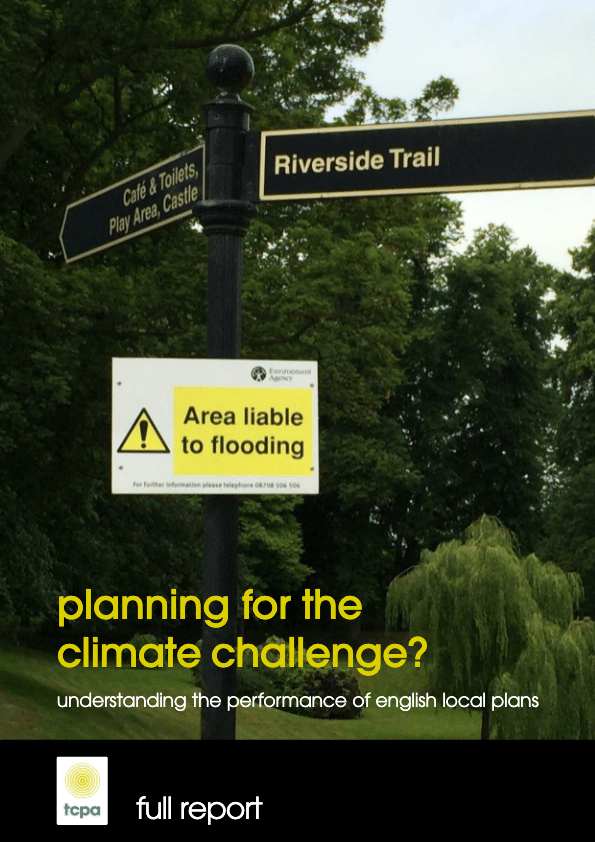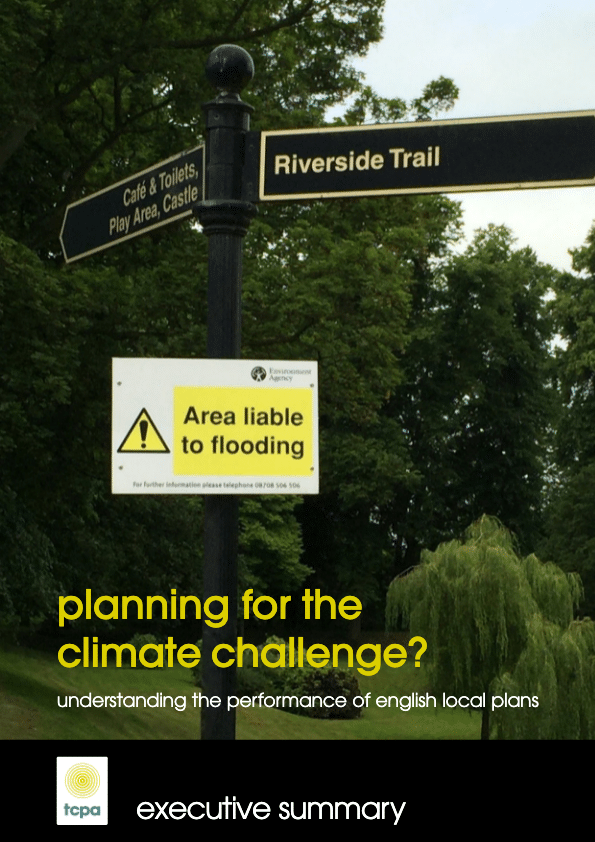Planning for the Climate Challenge? Understanding the performance of English local plans
Despite the increasing intensity and frequency of climate-related impacts, local plans are not delivering on the basic standards set out in national law and policy for either mitigation or adaptation. To deliver the fundamental change required, climate change must be placed front and centre of the policy priorities of the spatial planning system. Only a radical refocusing of the system will meet the challenges of climate change, now and in the future.
This study found that local plans in England are not dealing with carbon dioxide emissions reduction effectively, nor are they consistently delivering the adaptation actions necessary to secure the long-term social and economic resilience of local communities. There was a wide variety of practice: there were some examples of positive responses, but, taken as whole, it is clear that since 2012 climate change has been de-prioritised as a policy objective in the spatial planning system. The large-scale failure to implement the clear requirements of national planning policy is a striking finding, as is the reduced capacity of the local authority planning service and the reduced capacity of Environment Agency to support the long-term plan-making process.
The study underpinning this report explored how local plans published since the National Planning Policy Framework was produced in 2012 are addressing climate change. Drawing on a sample of 64 local planning authorities in total, and based on an analysis of local planning documents, a survey of local authority planners and four more-detailed, area-based case study examinations, the study established the extent to which climate change mitigation and adaptation are reflected as priorities in local plan policy in England.
The report sets out ten recommendations:
Recommendation 1: Re-prioritise climate change in the local plan system
Recommendation 2: Provide clarity on the legal requirements on climate change
Recommendation 3: Provide clarity in national policy
Recommendation 4: Define the scope of climate evidence in local plans
Recommendation 5: Deal clearly with risk
Recommendation 6: Reform the governance of the delivery of action on climate change
Recommendation 7: Review the scope of the English spatial planning system
Recommendation 8: Provide adequate resources to plan for climate change
Recommendation 9: Encourage spatial planning over the long term
Recommendation 10: Promote new forms of strategic co-operation
The local planning system must deliver the homes and communities that our nation needs, but it must do so within the context of one of the greatest challenges ever to face our society: climate change. It remains unclear whether the United Nations Framework Convention on Climate Change (UNFCCC) Paris Agreement resulting from the 21st session of the Conference of the Parties (COP 21) held in December 2015 can deliver long-term climate stabilisation, but this report highlights that England’s planning system is not effectively engaging with current risks and is simply disengaged from its core task of addressing long-term future change. The system remains critically unprepared to deliver both carbon dioxide emissions reduction and the kind of resilience measures needed to deal with the scale of the climate change impacts anticipated in the UK, as identified by the scientific evidence.
For any queries, please contact Hugh Ellis on Hugh.Ellis@tcpa.org.uk



